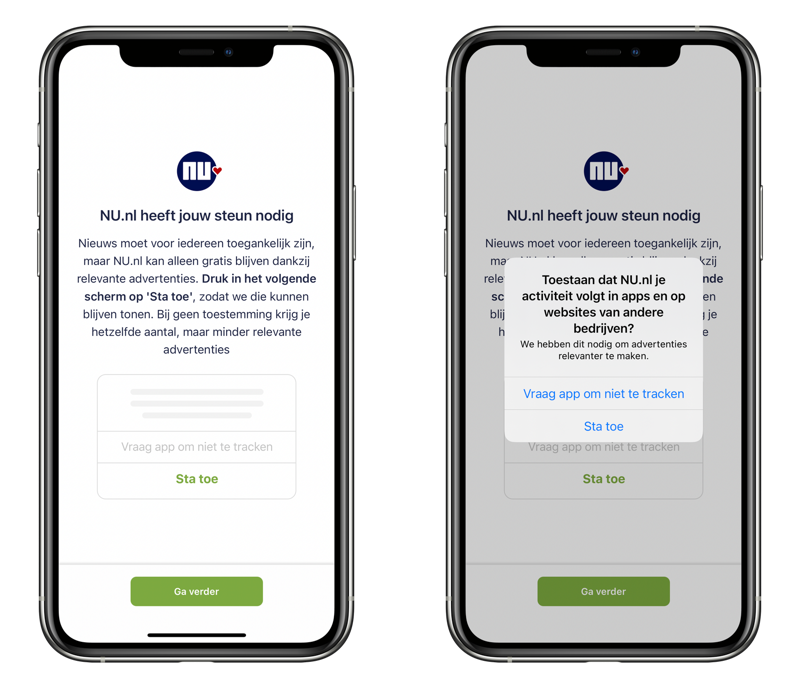One of the most controversial privacy improvements in recent years is undoubtedly anti-app tracking in iOS 14.5. This prevents apps from using your advertising ID (IDFA) to track your behavior with other apps and websites. Apps are now required to request permission from Apple to do this. As an iOS user, you now have a number of choices regarding app tracking. Which setting have you chosen?
iCulture polls: what have you set for app tracking?
For years, publishers have used methods to track you on apps and websites that they do not necessarily own in order to serve you targeted ads in their own apps. This is done, for example, via Google or Facebook pixels, but there are hundreds of other ways. This allows data about you or your device to be combined with information about you collected through (other) apps and websites. A profile of you is built in this way, which usually results in more targeted advertisements. Such a profile can also be shared with third parties, which is often very valuable information for advertisers.
Since iOS 14.5, you have the choice to block part of the tracking. With the new tracking function in iOS/iPadOS, you can even choose which apps can or cannot follow you on other apps and websites in this way. But keep in mind that for the time being you will only prevent advertising profiles, but not, for example, which pages you visit on a site or within an app. So you mainly block your advertising profile (personal interests) with this. It is also up to the developer to comply with your choices.


Your options in brief
You can choose whether apps can send tracking requests and/or whether this is immediately blocked for all apps. If you choose to allow the requests (switch on), you can indicate per app whether or not it may follow you. You have a number of choices for app tracking:
- Switch & ldquo; Allow app tracking requests & rdquo; disabled (default): Enable this switch OFF , apps are not allowed to send you a request to track you. The apps are also automatically informed that you do not want to be tracked.
- Switch & ldquo; Allow app tracking requests & rdquo; enabled : If you turn the switch ON , apps may ask for your permission to track you. A pop-up message will then appear with which you can indicate whether or not to be followed by the app.
- Option & ldquo; Ask app not to track & rdquo; with a pop-up notification in the relevant app: you indicate that the app may not track your activities in other apps and websites and that you may not show personalized advertisements or other content. The app may use other ways to keep track of your data.
- Option & ldquo; Allow & rdquo; at pop-up: you give permission for the app to track you in may also use other apps and websites and your profile information for personalized advertisements. The notification explains what the app does with the information (for example, targeted advertisements).


notification for app tracking.
If you want to read more about ad tracking in apps, read our general tip.
Which do you choose?
< p> Now it's time for our poll: is your tracking request switch off or on? Do you give apps permission to follow you or rather not? Vote for the option that suits you best.
Take Our Poll
Are you viewing this article through the app? Then you will find the poll here.
Shortly after the introduction of iOS 14.5, there were some problems with the app tracking, which caused the switch for tracking requests, for example, to be gray. In the meantime, Apple has solved this in most cases. If it doesn't work well for you yet, make sure you have iOS 14.5.1 installed. Also make sure that the apps are up-to-date to be able to receive the explanatory requests from apps.

